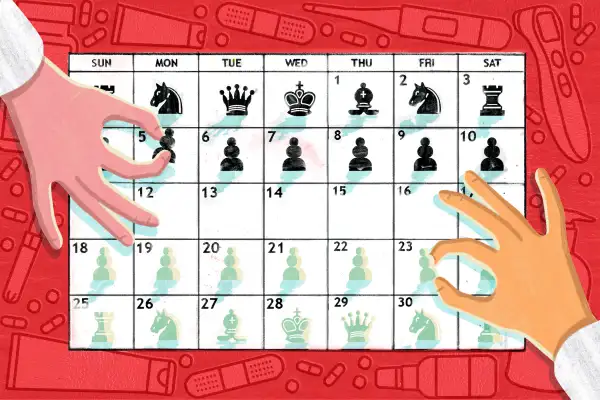Use Your FSA Funds ASAP, Because They're (Probably) About to Expire

If you have a flexible spending account (FSA), make sure to add using up those funds to your end-of-year to-do list. In many plans, Dec. 31 is the deadline to use the funds you allocated for this year, or they're lost forever.
An FSA is an employer-offered account that allows you to put aside tax-free dollars for eligible out-of-pocket health care costs. In 2020, the contribution cap was $2,750 (per employee, so if you and your spouse’s employers both offer an FSA with the maximum cap, you can both contribute $2,750 to your accounts).
Americans lose more than $400 million a year by not spending all the money they set aside in their FSAs, according to Rida Wong, president of FSAstore.com, an online marketplace that exclusively carries FSA-eligible items. A lot of that is due to people not understanding what is eligible, she adds.
“There’s a common misconception that it’s only for copays or elective procedures or vision and dental,” Wong says. “But there are many more ways to use FSA funds.”
What can you use your FSA for?
From birth control and breast pumps to first aid kits and vitamins, there are a ton of out-of-pocket health care expenses that are eligible. And in addition to items, you can pay for visits for needs like chiropractic care and flu shots.
To easily search for and buy eligible items, FSAstore.com has categories broken down for all needs, including one called “Virus Preparedness,” which includes thermometers, heating pads and inhalers.
Something people don’t tend to know is that you can get reimbursed for gas to and from medical appointments via your FSA, says Leonard Raskin, a certified financial planner and CEO of Raskin Global based in Hunt Valley, Md.
The CARES Act also made feminine products, like pads and tampons, and over-the-counter medication eligible to buy with FSAs. While medications like Ibuprofen could be reimbursed before the legislation passed in March, you had to get a prescription from your doctor to do so.
“If you need to find something to fund, you can go to the store and stock up on your 2021 supply of Motrin, cough syrup and feminine products,” Raskin says. “You’d be using the money rather than losing it, and I think that’s a great play.”
Can you roll over your FSA to 2021?
As Raskin points out, the downside of a FSA is that if you don’t use it, you lose it. However, the IRS allows employers to give their employees the option of rolling over a certain amount of money to the following year — $550 for 2020. Employers can also give their employees a grace period of two months and 15 days into the next year to use up their FSA. But make sure to check your employer’s plan, as they’re not required to allow the rollovers or a grace period.
Because the money will be forfeited if not used, remember to assess how much money you used this year and whether you should adjust the amount you put into your account for 2021. Since 2020 was a unique year when it comes to health care — maybe you fell ill with COVID-19 and racked up medical bills, or maybe you spent less than usual on copays as you postponed medical appointments — take into consideration that next year could look very different. If you decide to add $1,000 to your FSA, you want to know you’ll be able to spend all that money on eligible items next year.
And keep in mind that when you make claims at the end of the year, you need to have proof of your payments in case you’re audited. If you buy over-the-counter medications, for example, you want an itemized receipt, Raskin says. If you went to the doctor’s and are looking to reimburse the copay, you need to keep the doctor’s bill (not the credit card receipt).
He recommends keeping those receipts and bills in a file with your tax information so you can justify what you spent, if need be.
“It’s a great benefit to be able to put it in pre-tax and take it out tax-free,” Raskin says. “The last thing you want to do is to not be able to use it if you got audited and have that expense reversed.”
More from Money:
5 Expert Ways to Maximize Your Credit Card Rewards (Without Overspending)
The New Rules for Buying a House in 2021
The Secret to Saving the Perfect Amount of Money Every Time You Get Paid

